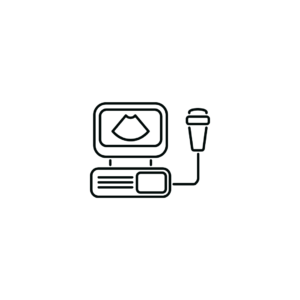Description
Overview of Bachelor of Science in Medical Lab Technology (MLT)
The Bachelor of Science in Medical Lab Technology (MLT) program is designed to equip students with the knowledge and skills necessary to function effectively as medical laboratory technologists. This program focuses on the principles, techniques, and technologies used in medical laboratories, preparing graduates for careers in diagnostic testing, quality assurance, and laboratory management.
Core Areas of Study in B.Sc. Medical Lab Technology
Introduction to Medical Laboratory Technology
Overview of the role of medical laboratory technologists in healthcare, including laboratory operations and the significance of laboratory testing in diagnosis and treatment.
Human Anatomy and Physiology
A comprehensive understanding of human body systems and their functions, essential for interpreting lab results.
Clinical Biochemistry
Study of biochemical processes and laboratory techniques for analyzing bodily fluids, including blood and urine tests.
Hematology
Examination of blood components, blood disorders, and laboratory procedures for analyzing blood samples and interpreting results.
Microbiology
Principles of microbiology, including the study of pathogens, culture techniques, and techniques for identifying infectious diseases.
Immunology and Serology
Understanding of the immune system and laboratory techniques used to test immune responses and diagnose immune-related conditions.
Pathology
Overview of disease mechanisms and laboratory diagnostics associated with pathophysiology.
Molecular Biology and Genetics
Introduction to molecular techniques, including DNA/RNA extraction, PCR, and genetic testing methods.
Laboratory Quality Control and Management
Principles of quality assurance, laboratory safety, and management practices necessary for running an efficient laboratory.
Clinical Practice and Internships
Hands-on training in real laboratory settings, applying theoretical knowledge to practice by performing diagnostic tests and procedures.
Curriculum Structure
A typical Bachelor of Science in Medical Lab Technology program may include:
Core Courses: Fundamental subjects covering anatomy, clinical biochemistry, microbiology, and laboratory management.
Laboratory and Clinical Experience: Practical training in clinical labs, allowing students to apply classroom knowledge in real-world settings.
Elective Courses: Options to specialize in areas such as advanced diagnostic techniques, clinical research, or laboratory informatics.
Capstone Project or Internship: A project or field experience that allows students to engage in research or clinical practice within medical labs.
Admission Requirements
Admission to a B.Sc. in Medical Lab Technology program typically requires:
A high school diploma with a solid foundation in science courses, particularly biology, chemistry, and mathematics.
A minimum GPA as specified by the institution, often in the range of 2.5 or higher on a 4.0 scale.
Some programs may require standardized test scores (e.g., SAT or ACT).
Letters of recommendation and a personal statement detailing the candidate?s interest in medical laboratory technology.
Skills Developed in a B.Sc. in Medical Lab Technology Program
Graduates of the Bachelor of Science in Medical Lab Technology program will develop essential skills, including:
Technical Proficiency: Expertise in operating laboratory equipment, performing diagnostic tests, and analyzing samples.
Critical Thinking: Strong analytical skills for interpreting laboratory results and troubleshooting technical issues.
Attention to Detail: Precision in conducting experiments, following protocols, and maintaining accurate records.
Communication Skills: Ability to convey complex information to healthcare professionals and collaborate effectively within a healthcare team.
Quality Control and Safety Practices: Knowledge of laboratory safety protocols, quality assurance procedures, and compliance with regulatory standards.
Career Opportunities
Graduates with a Bachelor of Science in Medical Lab Technology can pursue various career paths, including:
Medical Laboratory Technologist
Performing laboratory tests and analyses on samples to assist in the diagnosis and treatment of diseases.
Hematology Specialist
Focusing on blood testing and analysis, including the evaluation of blood disorders.
Clinical Microbiologist
Identifying microorganisms, conducting culture tests, and assisting in the diagnosis of infections.
Biochemist
Working in clinical biochemistry labs to analyze bodily fluids and interpret biochemical tests.
Laboratory Manager or Supervisor
Overseeing laboratory operations, managing staff, and ensuring compliance with safety and quality standards.
Research Scientist
Conducting laboratory research in clinical or academic settings, focusing on advancing laboratory techniques or developing new tests.
Conclusion
The Bachelor of Science in Medical Lab Technology program provides a solid educational foundation and hands-on training for aspiring medical laboratory technologists. By equipping graduates with the essential skills and knowledge to perform diagnostic testing, contribute to patient care, and maintain laboratory efficiency, this program prepares individuals for meaningful careers in the vital field of healthcare. If you have any further questions about the B.Sc. in Medical Lab Technology program or related topics, feel free to ask!









